Riemer-Tiemann reaction intrduces an aldehyde group, on to the aromatic ring to phenol, ortho to the hydroxyl group. This reaction involves electrophilic aromatic substitution. This is a general method for the synthesis of substituted salicylaldehydes as depicted below.
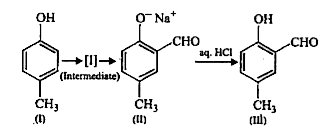
The electrophile in this reaction is
CHCl
+CHCl2
CCl2
CCl2
The correct Answer is:C
The action of NaOH on CHCl3 generates : CCl2 as the effective electrophile.
Topper's Solved these Questions
- ALCOHOLS, PHENOLS AND ETHERSBook:BRILLIANT PUBLICATIONChapter:ALCOHOLS, PHENOLS AND ETHERSExercise:LEVEL III (Statement Type Questions)
Explore 8 Videos
- ALCOHOL, PHENOL & ETHER Book:BRILLIANT PUBLICATIONChapter:ALCOHOL, PHENOL & ETHER Exercise:LEVEL II (ASSERTION - REASON TYPE)
Explore 40 Videos
- ALDEHYDES AND KETONES Book:BRILLIANT PUBLICATIONChapter:ALDEHYDES AND KETONES Exercise:LEVEL-II
Explore 42 Videos
Similar Questions
Reimer -Tiemann reaction introduces an aldehyde group on to the aromatic ring of phenol, ortho to the hydroxyl group. This reaction involves electrophilic aromatic substitution. This is a general method for the synthesis of substituted salicyladehydes as depicted below.
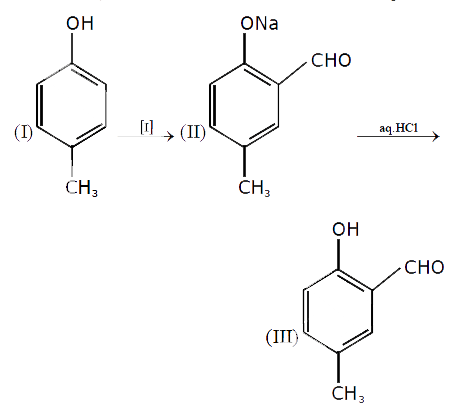
The electrophile in this reaction is
View SolutionReimer-Tiemann reaction introduces an aldehyde group on to the aromatic ring of phenol, ortho to the hydroxyl group. This reacrtion involves electrophilic aromatic subsititution. It is a general method for the synthesis of subsituted salicyladehydes as depiced below:
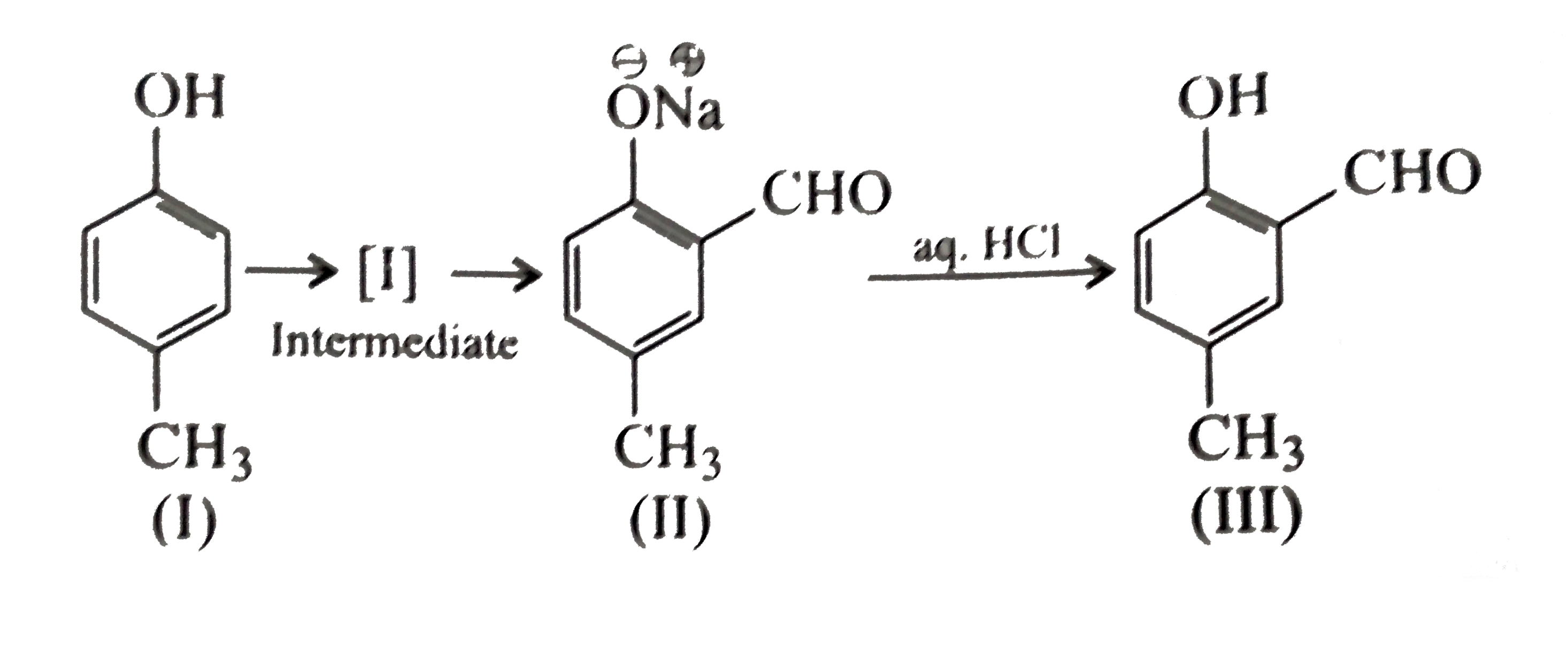
The electrophile in this reaction is:
View Solution
Knowledge Check
Reimer-Tiemann reaction introduces an aldehyde group, on to the aromatic ring of phenol, ortho to the hydroxyl group. This reaction involves electrophilic aromatic substitution. This is a general method for the synthesis of substituted salicyladehydes as depicted below.
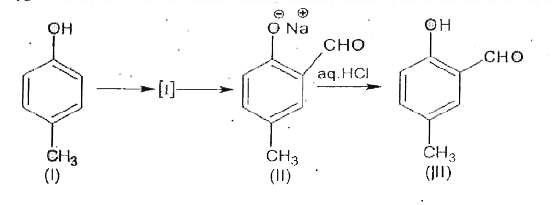
The electrophile in this reaction isA: CHClB+CHCl2C:CCl2DCCl3
Reimer-Tiemann reaction introduces an aldehyde group on to the aromatic ring of phenol, ortho to the hydroxyl group. Thi reaction involves electrophilic aromatic substitution. It is a general method for the synthesis of substituted salicylaldehydes as depicted below:
Q. The electrophilic in this reaction is-A:CHClB.⊕CHCl2C:CCl2D∗CCl3Reimer-Tiemann reaction introduces an aldehyde group on to the aromatic ring of phenol, ortho to the hydroxyl group. This reacrtion involves electrophilic aromatic subsititution. It is a general method for the synthesis of subsituted salicyladehydes as depiced below:

The electrophile in this reaction is:A:CHClB^(⊕)CCl2C:CCl2D.CCl3
Reimer -Tiemann reaction introduces an aldehyde group on to the aromatic ring of phenol, ortho to the hydroxyl group. This reaction involves electrophilic aromatic substitution. This is a general method for the synthesis of substituted salicyladehydes as depicted below.
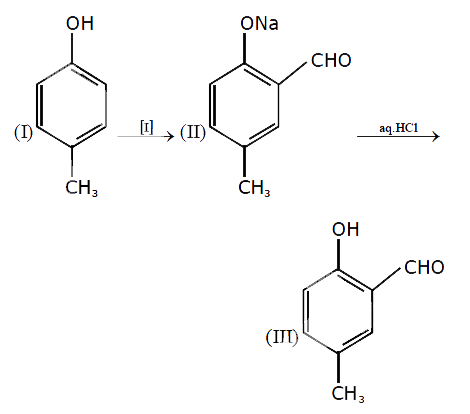
The structure of the intermediate I is
View SolutionRiemer-Tiemann reaction intorduces an aldehyde group, on to the aromatic ring of phenol, ortho to the hydroxyl group. This reaction involves electrophilic aromatic substitution. This is a general method for the synthesis of substitued salicyladehydes as depicted below.

The structure of the intermediate I is:
View SolutionReimer-Tiemann reaction introduces an aldehyde group, on to the aromatic ring of phenol, ortho to the hydroxyl group. This reaction involves electrophilic aromatic substitution. This is a general method for the synthesis of substituted salicyladehydes as depicted below.
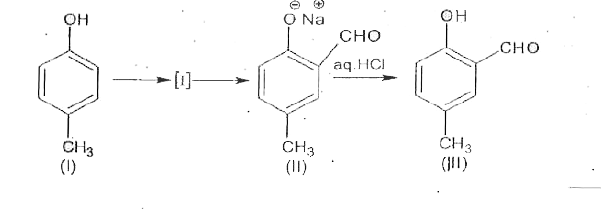
The structure of the intermediate I is
View SolutionRiemer-Tiemann reaction intorduces an aldehyde group, on to the aromatic ring of phenol, ortho to the hydroxyl group. This reaction involves electrophilic aromatic substitution. This is a general method for the synthesis of substitued salicyladehydes as depicted below.

Which one of the following reagents is used in the above reaction?
View SolutionReimer-Tiemann reaction introduces an aldehyde group, on to the aromatic ring of phenol, ortho to the hydroxyl group. This reaction involves electrophilic aromatic substitution. This is a general method for the synthesis of substituted salicyladehydes as depicted below.

Which one of the following reagents is used in the above reaction ?
View Solution
